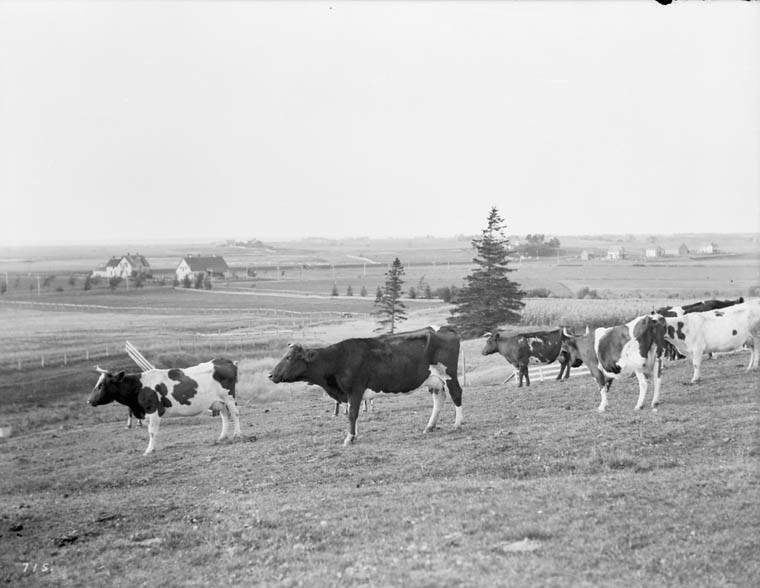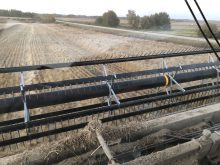In the mid-19th century, the Ottoman Empire was in trouble.
It had controlled much of Southeastern Europe, Western Asia, and Northern Africa from the 14th century onward, but had now entered a period of decline and contraction.
Emperor Nicholas I of the Russian Empire coined the phrase ‘the sick man of Europe’ to describe the rival empire’s status.
I had cause to reflect on this over the holiday season, while travelling to spend time with family on the farm, and reached the sad conclusion that I may be living in a localized version of this, amongst the Prairie provinces.
Read Also

Government silence loud on AAFC cuts
Canada’s federal government trumpets fiscal responsibility; their silence on a day of massive Agriculture and Agri-Food Canada cuts was baffling at best.
Like everyone else in Canada, much of this trip was governed by the sudden explosion of another wave of the COVID pandemic.
We obtained our booster shots and then wondered about getting tested prior to our visit. It would appear that many other Manitoba citizens shared our thoughts, as testing facilities were quickly overwhelmed by demand and snarled streets near some Winnipeg testing sites were the scene of traffic jams and road rage incidents.
Then our thoughts turned to obtaining some of the rapid test kits that, while not quite as accurate as full-blown laboratory testing, still offer some assurance of negative disease status before visiting elderly or medically vulnerable family members.
But it was not to be. Here in Manitoba it would seem our provincial government had once again sleptwalked into disaster, by failing to plan — which, as the clichéd high school gym teacher can assure you, is really “planning to fail.”
Rather than distributing the kits they were getting for ‘free’ from the federal government, they instead chose to hoard them to test unvaccinated workers, or distribute them to businesses where they were misallocated or unused.
Meantime the Winnipeg Free Press was reporting that the kits were being stolen at “an alarming rate” from the province’s health-care facilities.
That’s on top of other miscues, such as stubbornly refusing to spend federal funds totalling $400 million on COVID adaptation measures such as enhanced ventilation for schools.
It would seem that in the face of the Omicron variant, Manitoba had begun to devolve into some sort of dystopian scramble for scarce resources as case counts climbed daily.
Meantime, just over the line, in Saskatchewan, they were grappling with the same virus, but in a more proactive way.
Nothing could underline this more than our stop in Churchbridge, Sask. just 30 kilometres past the provincial boundary on the Yellowhead Highway.
On the advice of my sister, we went to the Co-op store there and inquired about rapid test kits. The difference between the two provinces couldn’t have been more stark. Literally the only question the cashier at the store had was, “How many would you like?”
Saskatchewan has a stockpile of 9.5 million rapid tests from the federal government that the province intends to make freely available to its roughly 1.1 million citizens.
That’s compared to just 2.7 million tests from the feds for Manitoba’s population of 1.3 million.
No doubt many will attempt to spin this as a failing on the part of the federal government, but in reality, the buck stops on Broadway in downtown Winnipeg, at the desk of Premier (and former health minister) Heather Stefanson.
Her former ministry and current provincial government have placed Manitobans at the back of the rapid testing line by failing to simply ask the feds for more test kits. A simple and proactive choice that could have helped prevent needless deaths, illness and social and economic upheaval.
It’s true that nobody can necessarily plan for everything, and that initially no government, anywhere, was ready for a pandemic. But two years in, most of us would have accomplished at least some learning on the job.
By now it must be apparent that forward planning works best, and that the various levels of government should co-ordinate, and that it’s a mistake to leave the help that’s being offered on the table.
Unfortunately that lesson appears to have been lost on our provincial government.
Over the past few days we’ve seen a number of agriculture events being postponed or moved online. That included Ag Days, which is trying to find a new later date and the Keystone Agricultural Producers annual meeting, which is now a strictly virtual event.
We’ve also heard a lot over the past few months about the need to learn to live with COVID, and the sad reality that it’s not going anywhere.
That learning should start with our provincial government. But so far it’s been the equivalent of a recalcitrant student who needs to be reminded to turn off the distractions, crack a book, and buckle down.
Until it does, Manitoba citizens will continue to pay the price.















